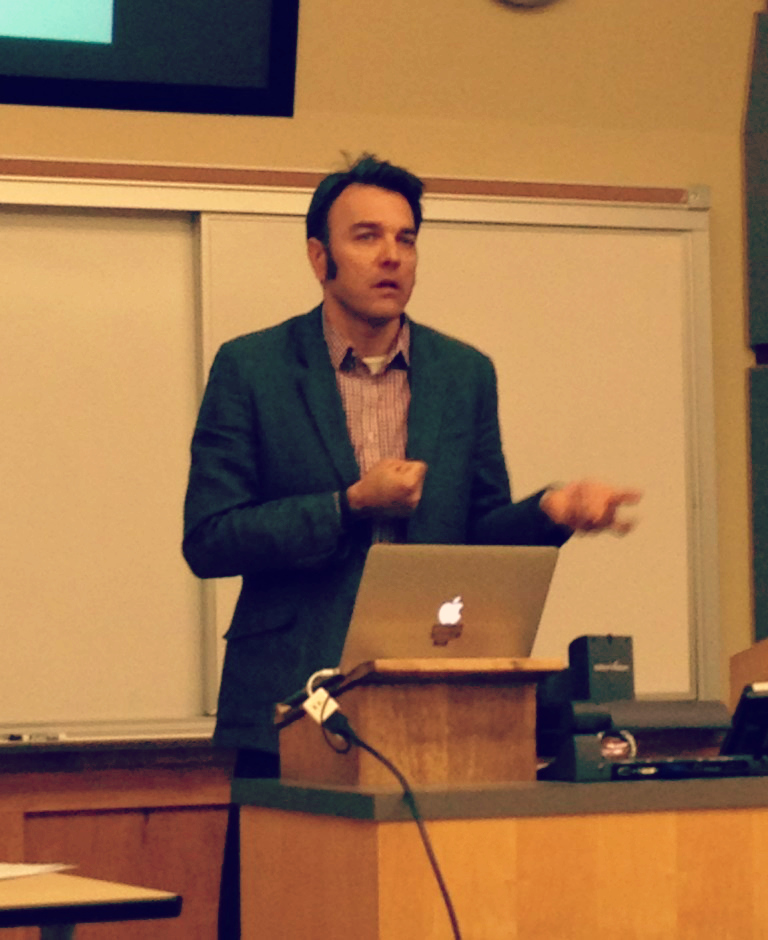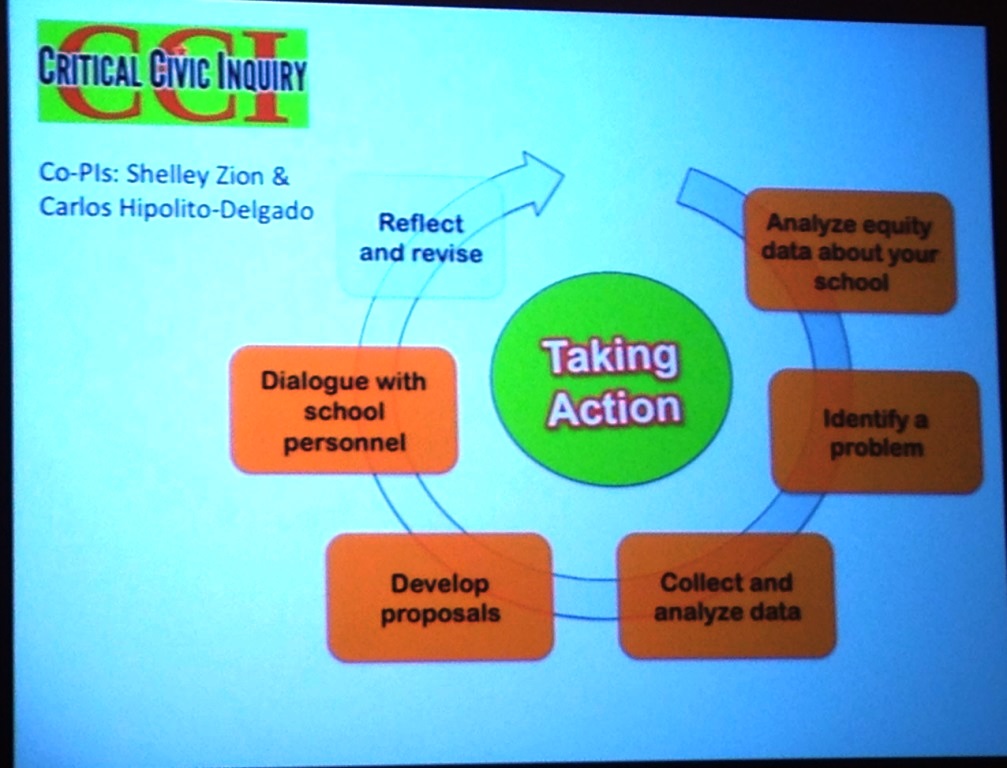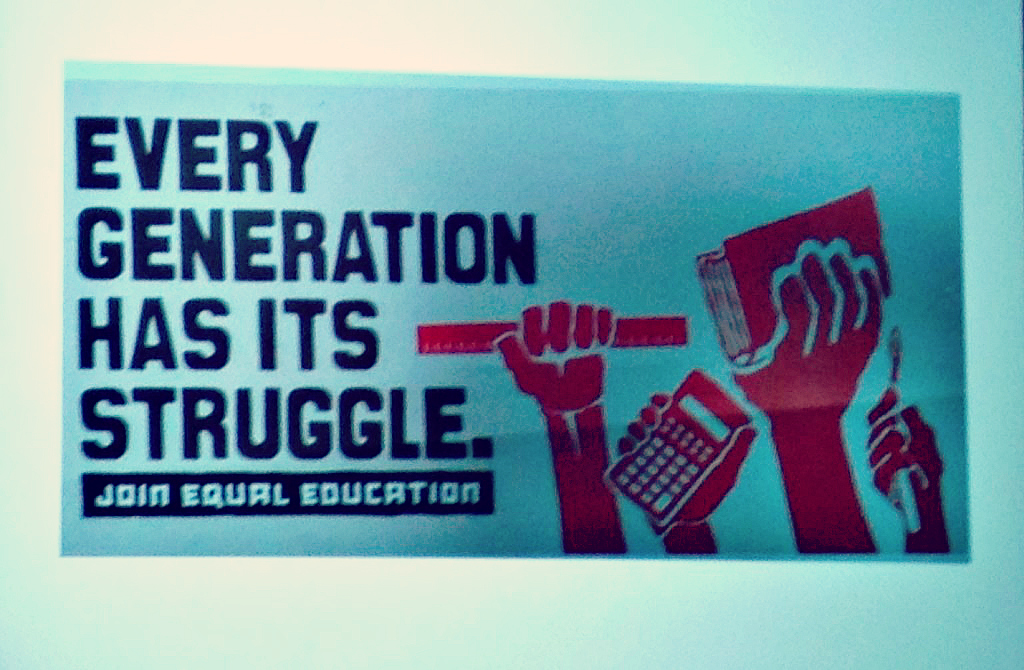English Department Communications Intern Marina Miller recently attended the second session of the CSU Writing Project Speaker Series on the Literacies of Contemporary Civic Life and has this to share:
This session featured Dr. Ben Kirshner, Director of Community Based Learning and Research at University of Colorado. It felt a bit more relatable for someone in my position. During Dr. Kirshner’s introduction, I learned that he was an integral person during the closure of Manuel High School in the Denver Public School District. This topic was of interest to me as I was a student of Denver Public Schools until I was accepted to CSU. I remember when Manuel High School closed, and I was a freshman in high school when it reopened. This talk seemed like something I had a bit of background knowledge in so it piqued my interest.
The writing prompt for this discussion was similar to the prompt we engaged in at the last speaker series. This time we were asked to define “civic literacies.” We were not given much time to write our answers before we were asked as a group what definitions we came up with. One woman, a high school teacher who was on a leave of absence while at CSU, gave her definition: “Civic literacy is the ability to be an active participant and beneficiary of the democratic process.” An education student then said that civic literacy is “understanding social and civic topics.” Kirshner then went on to state that he believed “‘Good citizenship’ is morally agnostic because you could be a ‘good citizen’ and still do things that are morally unacceptable.”
He used this as an opener to discuss the research that he has done for his upcoming book. He and a graduate student observed one Denver high school for a year and asked them to talk about race relations in their school. He shared one essay from an English as a Second Language (ESL) class from that school. The prompt was: Describe your experiences with Cinco de Mayo. The student was a Mexican American and wrote about how going to school on Cinco de Mayo made her feel “powerless,” “worthless,” and “like nothing.” She explained that when she was with her family on that day, she felt good and proud because they had a reason to celebrate and come together as a family.
Kirshner shared this and explained that during his time observing this school, he noticed that the only time the students openly talked about race was outside of the classroom. It was talked about at the entrance of the school, in the hallways or rarely huddled around a teacher’s desk after the rest of the class had left. This made me think about my time at Thomas Jefferson High School and my experiences with race in Denver Public Schools.
I distinctly remember race coming into classroom conversations about three times. Each of those times took place in either an Advanced Placement class or an Honors class, which unfortunately were composed of mostly white students. I remember in my Honors English class sophomore year, when discussing Mark Twain, the topic of the “N” word came up, as it often does when reading Mark Twain. A white male in my class groaned and said “Do we really have to talk about this?” And the one black male in the class said, “Yeah, let’s talk about it.” The room went very quiet as many of the students just didn’t know what to say. Eventually he explained that the word is used now as a reclaiming word and that they feel powerful because it is a word that only they can say. While it was enlightening to get a different perspective on such a loaded word, the problem was that was only one opinion. My class made that one student a spokesperson for his entire race.
This talk really made me reflect on my time in Denver Public Schools. I have learned much more about race relations and diversity since being in college. Race wasn’t talked about much in the high school classroom, at least not the classrooms that I was in. The topic of race was tiptoed around in one of the most diverse high schools in the district. Why is that?
The question of “why” is essentially what Dr. Kirshner was asking during his talk. He discussed that schools need spaces for these critical discussions and that teachers should own their identity and use that to help them engage in these conversations with students. He showed his plan for how teachers can get the conversation started in their own classrooms.
Kirshner briefly talked about his time in Cape Town, South Africa and the use of music as literacy in their fight for equal education. He explained that “music was the vehicle to claim legitimacy in the struggle” in South Africa. He showed a poster that said, “every generation has its struggle” which was the slogan of the fight for equal education. That simple sentence, “every generation has its struggle” is so powerful, it rings true for many. In some ways, my generation has the same struggle as generations long before us, equality and civil rights for all. As important as that battle and our struggle is, many around the world are struggling for much more, some even just for a voice in their world.
The session was recorded, so even if you had to miss it, you can watch it here:
More about this series: Throughout the spring semester we’ll be hosting nationally recognized literacies-based researchers and educators to discuss how literacy and youth civic participation intersect from varying, interdisciplinary perspectives. The speakers will be presenting their work and engaging in dialogue from 5:30-6:30, followed by a brief reception. These events are free and open to the public. All of the speakers will be presenting at the CSU campus in Clark A 205.
Up next: March 31st, Bud Hunt, CSU Alumnus & Instructional Technologist, St. Vrain Valley School District.


